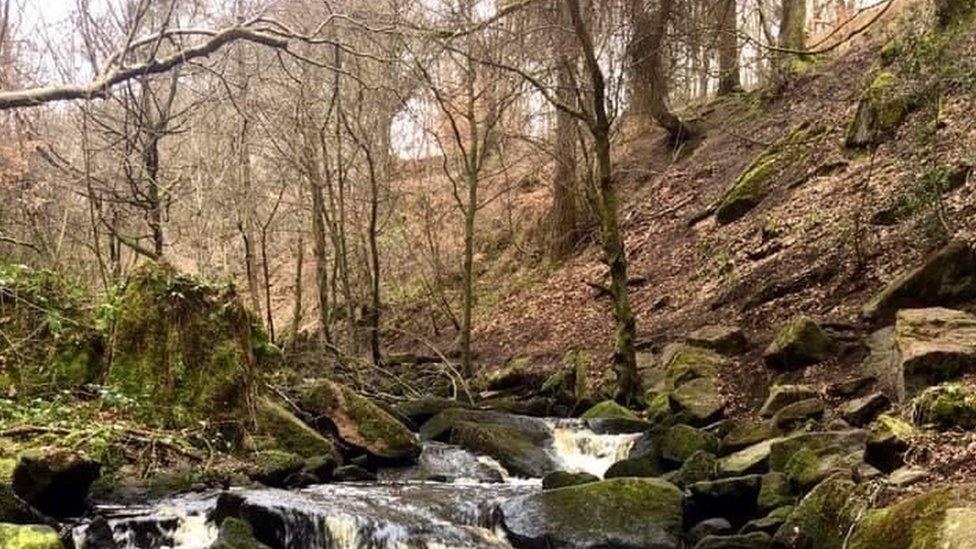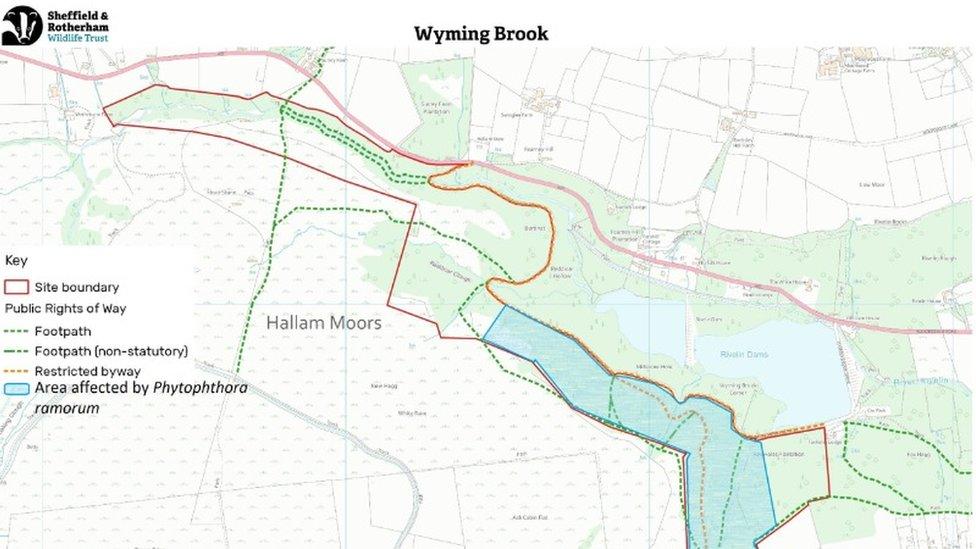Hundreds oppose felling of diseased trees in Sheffield
- Published

Hundreds of people have backed a campaign calling on a council to legally challenge the felling of more than 1,000 diseased trees.
Campaigners say the chopping down of larch trees at Wyming Brook Nature Reserve in Sheffield will render it a "post-apocalyptic landscape".
The government ordered the removal after the trees contracted a non-native fungus-like disease.
Sheffield City Council has been contacted for a response.
Work started on chopping down the trees in September and is expected to be completed by Christmas, according to the Local Democracy Reporting Service, external.
It came after the Forestry Commission served a Statutory Plant Health Notice (SPHN) to Sheffield and Rotherham Wildlife Trust forcing it remove the trees which are infected by Phytophthora ramorum.

A map shows the area of trees affected by the disease
The Commission's policy is to destroy trees in the infected area - including healthy trees - as quickly as possible to prevent spreading.
However, a petition was launched earlier this month urging the council to challenge the SPHN and call for the work to be suspended.
The petition states: "We demand an immediate stop to the felling of trees at Wyming Brook Nature Reserve.
"As the landowner, you have a duty to protect this very special place, possibly Sheffield's most celebrated beauty spot and a jewel of nature."
It adds that the removal of the trees would mean "there will no longer be a 'wooded ravine' but a bare-sided valley in a post-apocalyptic landscape."
A spokesperson for Sheffield and Rotherham Wildlife Trust said it is expected to have an "unavoidable dramatic effect" on the landscape, but there was nothing it could do to save them.
Roy Mosley, head of conservation and land management, said it had been "open and honest about the planned works on site" and that the notice did not cover the whole site.
He added: "As such, we think the integrity of the woodland overall will be maintained, and due to this action larch trees outside the SPHN area (on the reserve and beyond) may not succumb to the disease.
"We also expect, in time, that trees will fill the spaces created through natural regeneration creating a diverse, resilient woodland."

Follow BBC Yorkshire on Facebook, external, X (formerly Twitter), external and Instagram, external. Send your story ideas to yorkslincs.news@bbc.co.uk, external.